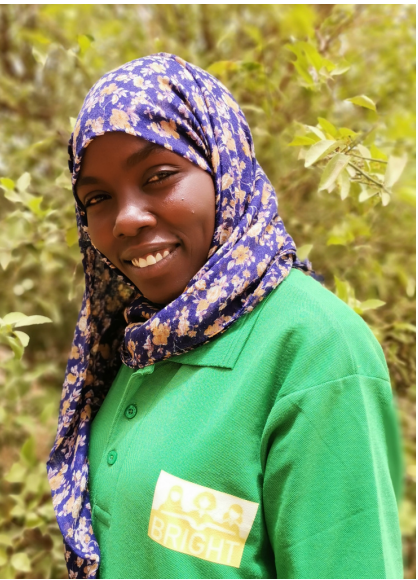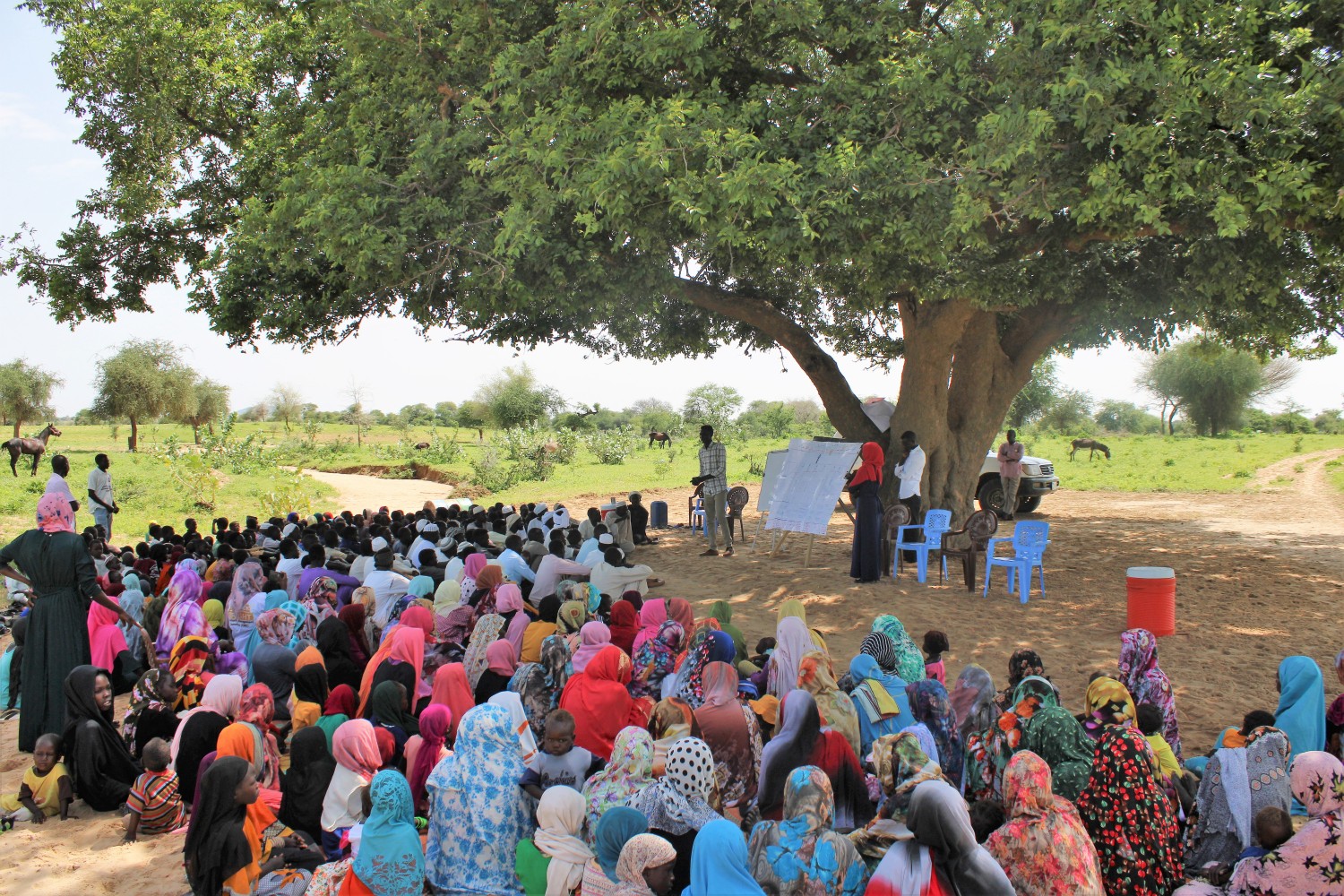Majda is a young woman on a mission. She lives in West Darfur, Sudan, where harmful gender norms and practices devalue girls and women, barring them from exercising their human rights. This is made even worse by the risks and suffering imposed by the 20 years of conflict in Darfur.

But this is also one of the areas where the BRIGHT project, with generous funding support from Global Affairs Canada, is partnering with communities to bring about positive change. In Myanmar, Niger, and Sudan, BRIGHT is tackling many of the barriers that stand in the way of children’s education, especially for girls. Education assists in empowering peace-building and breaking cycles of poverty. It is also something that happens beyond the classroom.
One barrier to education is gender inequality which undermines girls’ ability to attend school and holds women back from full participation in decision-making and leadership in their families and society. One way gender inequality manifests itself is through gender-based violence, especially in conflict-affected areas. Whether in the home, on the way to school, or at many other moments in a girl’s or woman’s life, she is at risk of harm.
“Sexual and physical assault of women and girls throughout the crisis in Darfur has constituted a systematic pattern of attack perpetrated by armed people,” Majda explains. “Rape has been used as a mechanism to destabilize, destroy, and displace populations, to build fear and to humiliate and disempower local communities as men are unable to protect their wives and relatives. Other forms of gender-based violence prevail, as well. Patriarchal practices such as early and forced marriage persist. My sister has been forced by my parents to marry someone she does not like. This has resulted in violence as he beats her regularly.”
Gender inequality is to the detriment of all. It is well established that health, opportunities, and peace for all are improved when women are able to participate equally in the decision-making of their families and communities.
BRIGHT works with communities to tackle the stumbling block of gender inequality. One way is through the BRIGHT Women Leaders Leadership training. Majda is one of 280 women leaders empowered by this training.
“I have suffered a lot,” Majda shares. “In spite of this, I am now in the position of Women’s Organizations Coordinator for BRIGHT [in my locality]. I have not only turned my bitterness into productive efforts but have sought possibilities to give others confidence and to help them discover themselves and move beyond the suffering they have been through by seeking practical solutions and actions.”
The aim of the training is to address gender-specific concerns and promote and strengthen women’s capacity and engagement in leadership, education, community decision-making, and the peace process.

The training covered topics such as leadership, challenging traditional gender norms, harmful notions of masculinity and femininity, gender equality concepts, human rights, sexual and reproductive health and rights (SRHR), child early and forced marriage, and gender-based violence (GBV). The training delved into the services available for survivors of GBV as well as how to improve them.
“The BRIGHT project is a great opportunity to improve human and institutional capacities and performance and scale up access and coverage. The engagement with traditional leadership and women’s organizations will allow for the scale-up of prevention and response to sexual and gender-based violence which aims to create a comprehensive and coordinated response to improve the quality of and access to services for survivors of sexual abuse [in this locality].”
As gender equality is not about women versus men, the training also addressed the importance of male engagement. Gender equality can only be successful when men and women both understand its value and work together for its achievement. Alongside the Women Leaders Leadership training, BRIGHT recruited and trained male champions who advocate for and practice gender equality not only in their communities but also in their families.
After the training, the women leaders shared their knowledge and awareness in the communities, including the men. They are working to empower all to make positive changes.
This initiative has seen success.
“It’s very interesting to witness how gender norms have changed positively,” says Cho Thel, the BRIGHT Senior Project Manager. “For example, When BRIGHT first began, the women would sit under one tree, the men under another. Not sitting together. But now, they sit under a big tree. Women get more equal opportunities and they can raise their voices freely. An even more beautiful thing I witnessed was a mother was standing and speaking in a group discussion. Her baby was crying. The man next to her began taking care of the baby. This is really what we want to see, this change in the community.”
Sustainable Development Goal 4
 Sustainable Development Goal 4 is about quality education and is among the 17 Sustainable Development Goals established by the United Nations in September 2015. The full title of SDG 4 is “Ensure inclusive and equitable quality education and promote lifelong learning opportunities for all”.
Sustainable Development Goal 4 is about quality education and is among the 17 Sustainable Development Goals established by the United Nations in September 2015. The full title of SDG 4 is “Ensure inclusive and equitable quality education and promote lifelong learning opportunities for all”.
About the BRIGHT Project
ADRA Canada is partnering with Global Affairs Canada to implement the Breaking barriers, Improving Girls Education, Hope and Totality (BRIGHT) project.
ADRA Canada believes that every child everywhere has the right to an education. Through the BRIGHT project, ADRA will work over the course of four years (2020-2024) to make education available in remote, indigenous, and conflict-affected communities in Myanmar, Niger, and Sudan, focusing particularly on girls and women.
The project works to make education more readily available to communities. It’s working with parents and village leaders to address the barriers that specifically prevent girls and women from attaining an education such as early, child, or forced marriage, the devaluing of girls’ and women’s education, as well as sexual and gender-based violence. The project also works to ensure that minority groups have access to education that meets their cultural and language needs.
